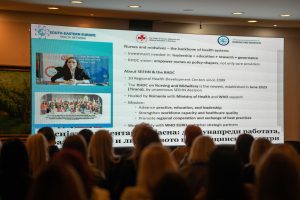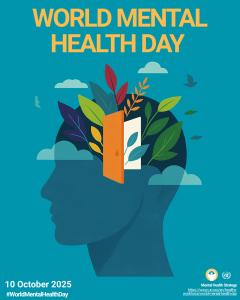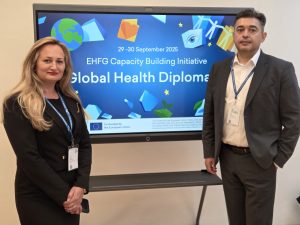
South-Eastern Europe Joins Forces to Address Maternal and Newborn Health Challenges Online Consultation Gathers Regional Stakeholders Under the Theme “Healthy Beginnings, Hopeful Futures”

On 28 May 2025, the South-Eastern Europe Health Network (SEEHN), in collaboration with WHO/Europe and the Regional Health Development Centre on Sexual and Reproductive Health (hosted by Romania), successfully convened a regional online consultation on maternal and newborn health today, uniting representatives from ministries of health, health professionals, and international partners.
Held in the spirit of World Health Day 2025’s theme “Healthy Beginnings, Hopeful Futures,” the consultation offered a dynamic platform to assess progress, exchange best practices, and identify priorities to strengthen maternal and newborn health systems across SEEHN Member States.
Opening remarks were delivered by Dr. Natasha Azzopardi-Muscat, Director of the Division of Country Health Policies and Systems at WHO Regional Office for Europe, and Dr. Tatiana Păduraru, Acting Head of the SEEHN Secretariat. Both highlighted the importance of regional solidarity and systems thinking in ensuring safe and equitable care for mothers and newborns.
The keynote presentation was delivered by Dr. Oleg Kuzmenko, WHO Regional Office for Europe’s Technical Officer on Sexual and Reproductive Health, who presented an overview of regional priorities, persistent gaps, and emerging opportunities. His insights reflected the need for innovative, data-driven, and equity-focused approaches to reduce maternal and newborn mortality and morbidity.
SEEHN Member States—Albania, Bosnia and Herzegovina, Bulgaria, Israel, Moldova, Montenegro, North Macedonia, Romania, and Serbia—shared national updates on challenges, innovations, and best practices. Presentations highlighted successful interventions, remaining inequities, and areas requiring additional resources or collaboration. The moderated discussion aimed at creating space for dialogue on lessons learned, joint capacity-building, and the potential for cross-border collaboration. Speakers and participants collectively identified priority areas including midwifery training, community-based care, data systems, and health workforce development.
In the closing remarks, Dr. Mihai Horga, Director of the SEEHN RHDC on Sexual and Reproductive Health (Romania) and event moderator, underscored the value of these collective platforms in advancing evidence-based and inclusive strategies across the region.
SEEHN and its partners extend gratitude to all contributors and reaffirm their dedication to supporting Member States in translating today’s reflections into impactful action—ensuring every mother and newborn in South-Eastern Europe has the opportunity for a healthy beginning and a hopeful future.










